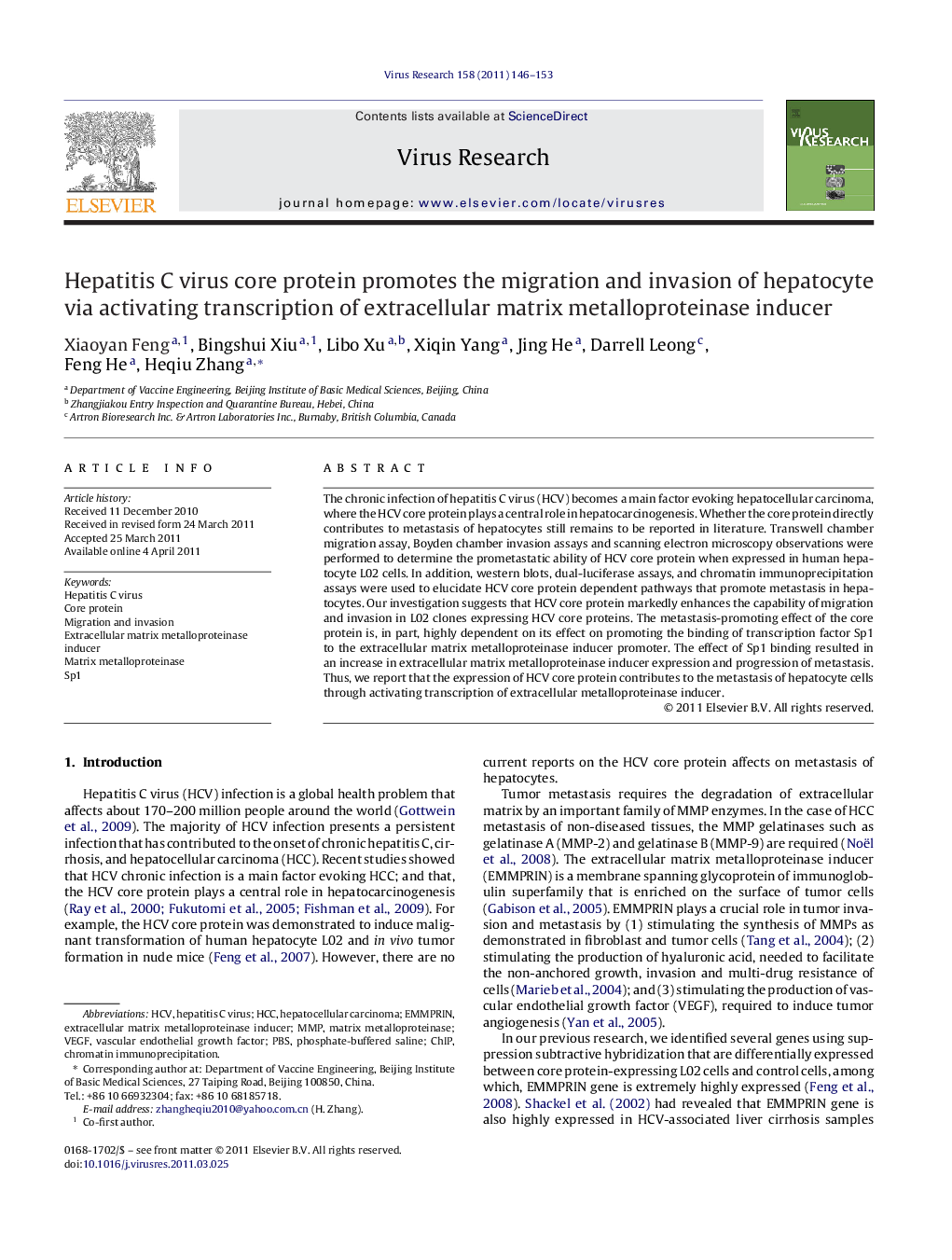| Article ID | Journal | Published Year | Pages | File Type |
|---|---|---|---|---|
| 3429001 | Virus Research | 2011 | 8 Pages |
The chronic infection of hepatitis C virus (HCV) becomes a main factor evoking hepatocellular carcinoma, where the HCV core protein plays a central role in hepatocarcinogenesis. Whether the core protein directly contributes to metastasis of hepatocytes still remains to be reported in literature. Transwell chamber migration assay, Boyden chamber invasion assays and scanning electron microscopy observations were performed to determine the prometastatic ability of HCV core protein when expressed in human hepatocyte L02 cells. In addition, western blots, dual-luciferase assays, and chromatin immunoprecipitation assays were used to elucidate HCV core protein dependent pathways that promote metastasis in hepatocytes. Our investigation suggests that HCV core protein markedly enhances the capability of migration and invasion in L02 clones expressing HCV core proteins. The metastasis-promoting effect of the core protein is, in part, highly dependent on its effect on promoting the binding of transcription factor Sp1 to the extracellular matrix metalloproteinase inducer promoter. The effect of Sp1 binding resulted in an increase in extracellular matrix metalloproteinase inducer expression and progression of metastasis. Thus, we report that the expression of HCV core protein contributes to the metastasis of hepatocyte cells through activating transcription of extracellular metalloproteinase inducer.
► HCV core protein promotes the migration and invasion of hepatocyte. ► HCV core protein promotes the migration and invasion of L02 cells via EMMPRIN-MMPs pathway. ► HCV core protein promotes the binding of Sp1 to EMMPRIN promoter.
